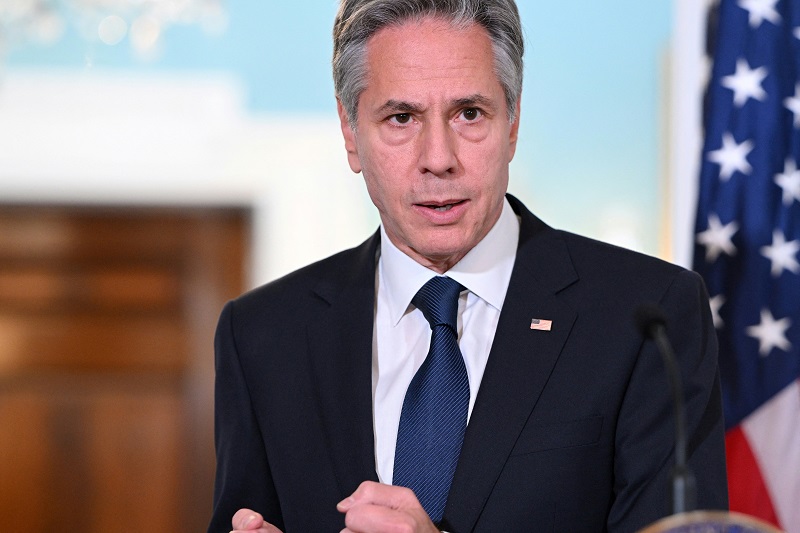
China Not Ready to Resume Military-to-Military Contacts With U.S., Agrees to Stabilize Deteriorating Relations
The U.S Secretary of State Antony Blinken has successfully wrapped up a high-stakes visit to China in a bid to ease and stabilize deteriorating relations between the countries. However, despite extensive discussions on various issues, the top diplomat failed to enhance military ties with China.
Blinken’s visit was intended to serve as a catalyst for improved relations, but the lack of progress in military cooperation raises concerns about the future trajectory of the bilateral relationship. The Biden administration has made it a priority to address key areas of contention, like trade imbalances, human rights issues, and territorial disputes. All eyes were on Blinken’s visit to lay the groundwork for further dialogue and collaboration, including military cooperation.
Yang Tao, Chinese diplomat, said Washington is obviously aware about the difficulty in military-to-military exchanges. He attributed this to U.S. sanctions, but Blinken defended saying it revolved around threats to American security. Washington believes military contacts with China, is a critical step toward lowering tensions, particularly in regards to Taiwan. Blinken told reporters its vital that U.S. and China have these kinds of communications. “This is something we’re going to keep working on.”
Keep Reading
China President Xi Jinping said the two countries have made progress and reached agreement on some specific issues. He highlighted that Beijing and Washington should properly handle Sino-U.S. relations with an attitude of being responsible to history, the people and the world. The Chinese leader said what happened between the two nations has a bearing on the future and destiny of mankind.
Ongoing Tensions in the Past Year
U.S. and China tussle over hegemony and power politics. They see each other as rivals in every sector, be it economy, military, intelligence, or technology. Tensions spilled over due to Beijing’s claims of Taiwan and the greater South China Sea as its territory. The Biden administration took it upon itself to isolate China by imposing a diplomatic boycott of the Winter Olympics in Beijing in 2022 due to the human rights abuses in Xinjiang.
China’s refusal to condemn Russian President Vladimir Putin for the special operations in Ukraine prompted the U.S. to lay more sanctions on Beijing. Xi criticized the U.S. sanctions saying it would only impact the people. Moreover, Blinken called to bolster American competitiveness toward China. He described the Asian giant as the most serious long-term challenge to the international order. The US Secretary of State also compared China’s authoritarianism to America’s commitments to advancing democracy and human rights.
Tensions further flared when Nancy Pelosi, former U.S. House Speaker, visited Taiwan to demonstrate U.S.’s support for the island state. As a result, Beijing suspended U.S. – China talks, cut off high-level military communication channels and imposed sanctions on Pelosi. In a show of power, the People’s Liberation Army (PLA) conducted live-fire drills and launched ballistic missiles over the island.
In November 2022, U.S president Joe Biden and Xi met in Indonesia in person for the first time. They agreed to ease bilateral tensions and resume talks. But early 2023, the spy balloon incident came up and the Biden administration cancelled Blinken’s trip to Beijing.
But now the U.S. and China have agreed to return to a broad agenda of cooperation. They are willing to hold more talks. Xi said the Chinese government has made its position clear. Both countries have agreed to follow common understandings.




